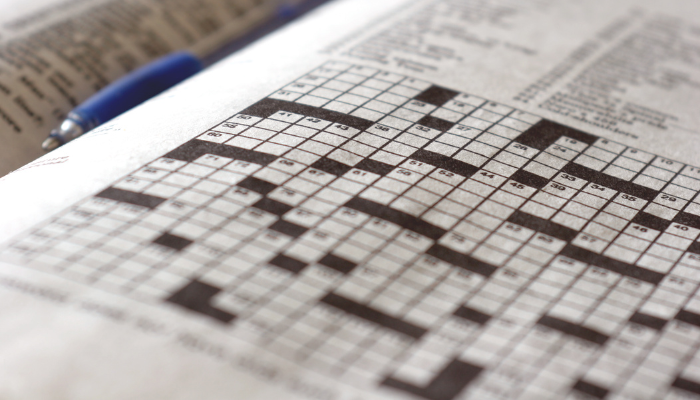Title: Unlocking the Mystery of Puzzle Books: A Journey into Entertainment and Enlightenment
Introduction:
Puzzle books have captivated minds for centuries, offering a delightful blend of entertainment and mental stimulation. From the humble origins of crossword puzzles to the modern-day craze of sudoku and beyond, puzzle books have held a special place in the hearts of enthusiasts around the world. In this comprehensive guide, we’ll delve into the fascinating world of puzzle books, exploring their history, benefits, creation, notable authors, and the exciting future they hold.
Quick Tips for Puzzle Book Enthusiasts:
- Choose Variety: Look for puzzle books that offer a mix of different puzzle types to keep your mind engaged and challenged.
- Start with the Basics: If you’re new to puzzle solving, begin with easier puzzles and gradually work your way up to more challenging ones.
- Experiment with Themes: Explore puzzle books with unique themes or settings to add an extra layer of enjoyment to your solving experience.
- Join Online Communities: Connect with fellow puzzle enthusiasts online to share tips, tricks, and recommendations for great puzzle books.
- Stay Consistent: Set aside regular time for puzzle-solving to reap the full cognitive and relaxation benefits.
I. History of Puzzle Books
Puzzle books have a rich and storied history that dates back centuries. The earliest known puzzle book dates back to the 18th century, featuring simple word puzzles and riddles. Over time, puzzle books evolved to include a wide range of puzzles such as crosswords, sudoku, logic puzzles, and word searches. Notable milestones include the publication of the first crossword puzzle book in the early 20th century and the explosion of sudoku’s popularity in the 21st century.
II. Types of Puzzle Books
Puzzle books come in various shapes and sizes, catering to a diverse range of interests and preferences. Some of the most popular types include:
- Crossword Puzzle Books: Offering a grid of interlocking words and clues, crossword puzzle books challenge solvers to think creatively and expand their vocabulary.
- Sudoku Puzzle Books: Sudoku puzzles, originating from Japan, feature a grid of numbers that must be filled in according to specific rules, testing solvers’ logical reasoning and problem-solving skills.
- Logic Puzzle Books: Logic puzzles, such as logic grids and deductive reasoning puzzles, require solvers to use critical thinking and inference to deduce solutions.
- Word Search Puzzle Books: Word search puzzles task solvers with finding hidden words within a grid of letters, providing a relaxing and visually stimulating experience.
- Variety Puzzle Books: These books offer a mix of different puzzle types, providing solvers with a diverse and engaging challenge.
III. Benefits of Solving Puzzle Books
Solving puzzle books offers a myriad of benefits beyond just entertainment. Research has shown that engaging in puzzle-solving activities can enhance cognitive function, improve memory and concentration, reduce stress, and promote a sense of accomplishment. Whether you’re looking to keep your mind sharp, unwind after a long day, or simply have fun, puzzle books offer something for everyone.
IV. Tips for Creating Puzzle Books
Creating puzzle books can be a rewarding creative endeavor. Whether you’re a seasoned puzzle designer or a novice looking to try your hand at puzzle creation, here are some tips to help you get started:
- Understand Your Audience: Consider the demographics and preferences of your target audience when designing puzzles for your book.
- Balance Difficulty Levels: Include puzzles of varying difficulty levels to cater to solvers of all skill levels, from beginners to experts.
- Inject Personality: Add unique themes, settings, or storylines to your puzzle book to make it stand out and capture readers’ imaginations.
- Test, Test, Test: Before publishing your puzzle book, be sure to thoroughly test each puzzle to ensure accuracy, clarity, and solvability.
- Seek Feedback: Don’t be afraid to solicit feedback from beta readers or fellow puzzle enthusiasts to improve your puzzle book before publication.
V. Notable Puzzle Books and Authors
Throughout history, numerous puzzle books and authors have left an indelible mark on the world of puzzles. From the iconic New York Times crossword puzzle to the brain-teasing challenges of Will Shortz Presents Sudoku, these books and authors have shaped the landscape of puzzle-solving and inspired generations of enthusiasts.
VI. The Future of Puzzle Books
As technology continues to advance, the future of puzzle books looks brighter than ever. With the rise of digital platforms, interactive apps, and augmented reality experiences, puzzle books are poised to reach new audiences and evolve in exciting ways. Whether in print or digital form, puzzle books will continue to provide entertainment, education, and enrichment for years to come.
Table of Puzzle Books and Prices:
| Title | Author | Format | Price |
| “The New York Times Sunday Crossword Omnibus” | Will Shortz | Paperback | $14.99 |
| “The Big Book of Sudoku” | Puzzle Master | Paperback | $9.99 |
| “Brain Games: Logic Puzzles” | Publications International Ltd. | Paperback | $12.99 |
| “Ultimate Word Search Collection” | Puzzle Baron | Paperback | $10.99 |
| “Variety Puzzle Book” | Various Authors | Paperback | $8.99 |
Conclusion:
In conclusion, puzzle books offer a delightful blend of entertainment, education, and mental stimulation for enthusiasts of all ages. Whether you’re a seasoned solver or a newcomer to the world of puzzles, there’s something uniquely satisfying about cracking a challenging puzzle and unlocking its secrets. As we continue to explore the fascinating world of puzzle books, let us embrace the joy of discovery and the thrill of solving one puzzle at a time.

